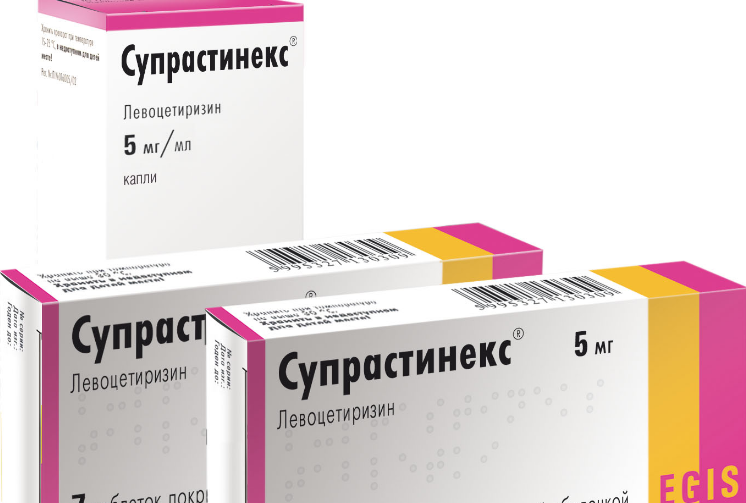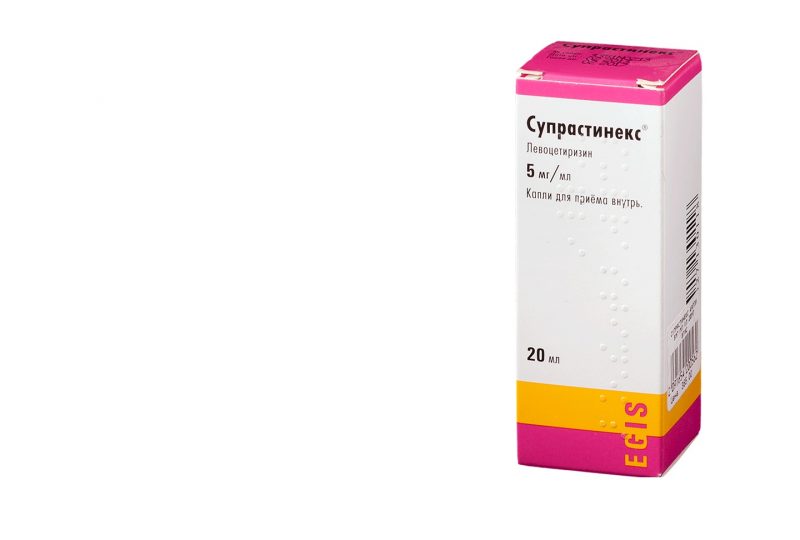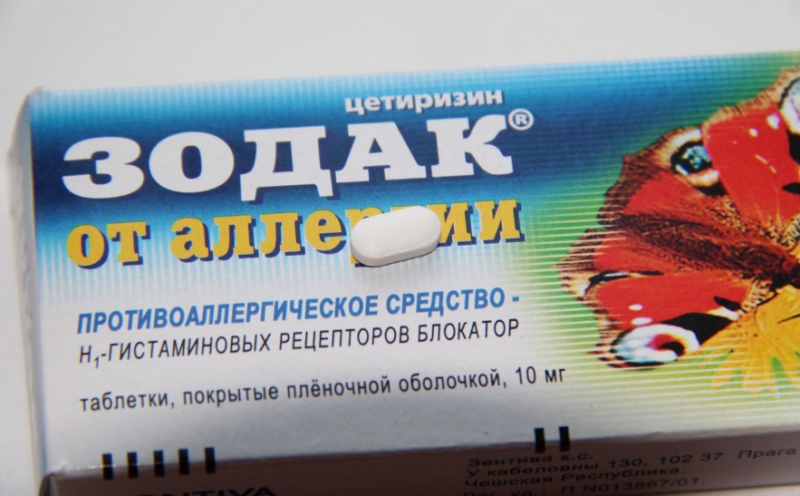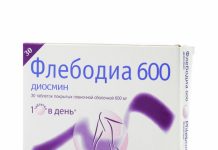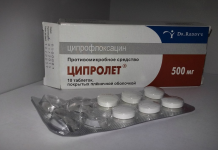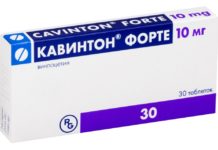Suprastinex is an antihistamine that helps to quickly and effectively cope with seasonal rhinitis, as well as any other allergic symptoms. According to the instructions for use, drops "Suprastinex" are not able to be addictive and withdrawal.
Material Content:
Composition (active substance) of drops
The antihistamine “Suprastinex” is a clear liquid without sediment. Bottled by the manufacturer in dark 20 ml vials. In 1 ml of the drug, 5 mg of levocetirizine dihydrochloride is present, which acts as the main active compound in the drug.
The main component is assigned to the group of third generation antihistamines that act as quickly as possible, without having a negative effect on the heart and blood vessels.
Additional compounds include: sodium acetate, glycerol, sodium saccharinate, acetic acid.
Shelf life after opening is 1.5 months.
Pharmacological properties
Under the influence of the main compound, the release of inflammatory mediators is blocked due to the direct effect on the histamine-dependent stage of most allergic reactions. As a result, there is a gradual elimination of any manifestations of an allergic disease.
High performance of Suprastinex in the treatment of dermatoses, hay fever, idiopathic urticaria in a chronic course is noted.
- The drug has an active decongestant effect, thereby facilitating the patient's breathing during an attack.
- Thanks to Suprastinex, vascular permeability decreases, as a result of which the frequency of allergic reactions decreases.
- In addition, the medicinal product helps to eliminate redness and itching with conjunctivitis, and to stop its other unpleasant symptoms.
Bioavailability is estimated at almost 100%. After use, the medicine quickly passes through the digestion process in the digestive tract, then it is metabolized in the liver and enters the general bloodstream.
Why is the drug prescribed?
According to the instructions for use, antihistamine drops can be prescribed by a specialist for symptomatic treatment of the following conditions:
- seasonal or persistent rhinitis, conjunctivitis of an allergic nature (swelling, increased mucus formation in the nasopharynx, severe itching);
- chronic urticaria (including the idiopathic variety)
- pollinosis of various types;
- allergic dermatosis, which is accompanied by a rash and itching;
Despite the fact that the active component of the drug is a modern antihistamine, it should be used only after consultation with your doctor.
Instructions for use Suprastineks for adults and children
The amount of the drug needed for effective and safe therapy should be determined by a specialist, since in some cases, dosage adjustment may be required. A prerequisite is the exact observance of the amount of medication taken according to the patient's age.
Drops "Suprastinex" for children are prescribed from the age of two. Therapy can last up to two months, but sometimes - until the elimination of the negative manifestations of the disease.
The medicine is used orally on an empty stomach or directly with meals. Reception should be carried out using a measuring spoon, but dilution of the drug in a small amount of water is also allowed.
- Adults should take Suprastinex at a standard dosage: 5 mg / 1 ml, or 20 drops, are indicated for patients with normal liver function. The amount of funds can be divided into several methods.
- Children are shown the amount of 5 drops (1.25 mg / 0.25 ml) twice a day. The permissible dose is 2.5 mg. Otherwise, the risk of negative reactions is not excluded.
During pregnancy and lactation
Due to the lack of clinical studies, as well as insufficient knowledge of the pharmacological effect on the fetus, this medication is not prescribed for pregnant and lactating women. The main component is able to stand out with milk, so during therapy should be abandoned breastfeeding. Otherwise, the child may experience adverse reactions.
Drug interaction
- Suprastinex is approved for use with the following drugs: Pseudoephedrine, Cimetidine, Erythromifin, Azithromycin, Glipizide and Diazepam.
- With simultaneous use with macrolides, no changes were noted during the ECG. However, it is worth noting that concurrent administration of theophylline leads to the fact that the main active component of Suprastinex reduces its activity by 15%.
It is not recommended to drink drinks with ethanol during Suprastinex therapy, since the inhibitory complex effect of the substances on the central nervous system is not ruled out.
Contraindications, side effects and overdose
Acceptance of this medication should be started after consultation with a specialist and a thorough study of the instructions for use.
Drops from allergies are not recommended for use in the following cases:
- renal failure in the last stage;
- lack of lactase;
- lactose intolerance;
- inadequate reaction of the body to the main component;
- age up to six years (for tablets);
- gestation and lactation;
- children's age up to two years (for drops).
There is a list of relative contraindications, in which the use of the drug must be negotiated with the attending physician, and the entire subsequent course of treatment is under observation.
These include:
- chronic renal dysfunction;
- advanced age;
- pathology of the spinal cord;
- prostatic hyperplasia;
- other pathologies in which urinary retention is noted.
Drops "Suprastinex", as a rule, do not cause unwanted reactions from the body.
Possible side effects include the following:
- migraine,
- apathy,
- dry mouth
- fatigue.
Young children experience headaches and drowsiness. And with an unknown frequency, other phenomena were recorded: tachycardia, attacks of nausea, dizziness, sleep disturbance, aggravation of signs of rhinitis, allergies and muscle pain.
An overdose of this drug is a rather rare phenomenon. In adult patients in this situation, severe migraines, drowsiness, loss of strength are noted. In the case of children, on the contrary, there is increased excitability, anxiety. The treatment of such conditions consists in gastric lavage, as well as in subsequent symptomatic therapy. In severe poisoning, hospitalization of the victim and intravenous administration of the drug are required.
Allergy drug analogues
Medicines with identical component composition and mechanism of action include such drugs: “Zodak”, “Eltset”, “Xizal”, “Gletset”, “Ceser”, “Zenaro”, “Alerzin” and “Levocetirizine”. The selection and use of a synonym medication should be agreed with an allergist.


